War
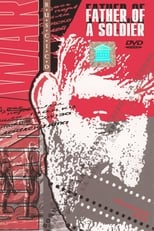
Father of a Soldier
May 11, 1965
During World War II, оld Georgian peasant wine-grower Georgy leaves his Georgian village and goes off to the front line, hoping to find his son. George should see and transfer a lot of things, he becomes a soldier and only in the last days of war finds the son...
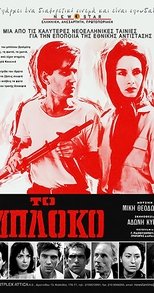
The Roundup
January 9, 1965
One of filmmaker and expatriate writer Adonis Kyrou's best-known quotes translates roughly as "I urge you: Learn to look at 'bad' films, they are so often sublime." The same could be said of Kyrou's own directorial work in Greece before the advent of the 1967 dictatorship forced him to flee to Paris. This confused mess, the first cinematic attempt at portraying the Greek resistance in WWII, caused quite a stink upon release, as much for its surprising style (recalling that of Bertolt Brecht) as for its subject matter. Reaction to its screening as part of the 1966 Cannes Film Festival's International Critic's Week was heated and divisive, proving Kyrou's later statement by rising above its own inherent silliness to achieve a sort of rarefied critical status. It's bad drama that nonetheless succeeds by dint of audacity more than quality (a comment which could apply equally to the work of many exploitation directors like Jean Rollin whom Kyrou later so lovingly profiled).
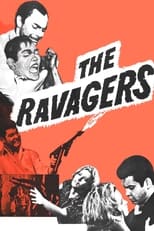
The Ravagers
January 8, 1965
A story about a Filipino guerilla Sargent who was tasked to ambush a company of Japanese soldiers staying at a convent.
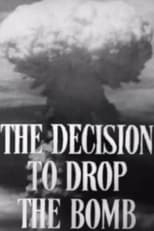
The Decision to Drop the Bomb
January 5, 1965
J. Robert Oppenheimer and other key figures involved in the decision to drop the first atomic bomb discuss their motivations in this NBC News documentary. Originally produced and televised in 1965, two decades after the bombings of Hiroshima and Nagasaki, it was re-released in 2023 with an epilogue by Michael Beschloss, NBC News Presidential Historian.
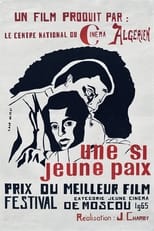
So Young a Peace
January 2, 1965
The first fictional feature film produced in Algeria after independence, this film addresses one of the most worrying problems: that of childhood. Children, freedom regained, do not yet know how to play “at peace”, they naturally play “at war”.
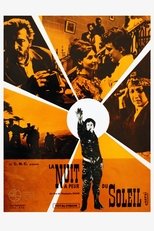
The Night Is Afraid of the Sun
January 2, 1965
Historical film in four scenes which retrace the returns, the progress and the outcome of the war of liberation in Algeria. The first painting, “The land was thirsty” describes aspects of injustice and colonial oppression. The second “The Paths to the Prison” recounts the sufferings of the people engaged in combat. The last two are the stories of two lives.
The Dead Don't Sing
January 1, 1965
A two-part television film based on the novel of the same name by Rudolf Jašík, depicting a realistic picture of life and interpersonal relationships during World War II in the mixed Slovak-German environment of the town of Pravna and the nearby village of Planice, as well as life and relationships between soldiers on the Eastern Front. From this perspective, the plot follows a unit of Slovak soldiers, their realisation that they are fighting for foreign interests, their dissatisfaction and distrust of everything, especially their officers.
Instrumentum mortis
January 1, 1965
Polish TV movie. Lost.

Hey, Stop That
January 1, 1965
An impressionistic slapstick satire on bomb shelters, military recruiting and gung-ho philosophy.
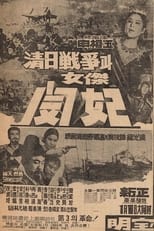
The Sino-Japanese War and Queen Min the Heroine
January 1, 1965
Queen Min makes regent Prince Daewon withdraw from ruling with the help of the Min Seung-ho Party.
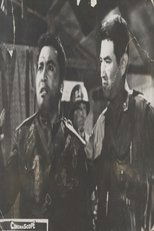
North and South
January 1, 1965
This wartime melodrama revolves around a woman caught between two men: her husband, a South Korean lieutenant, and her former lover, a North Korean officer who defects to come find her.
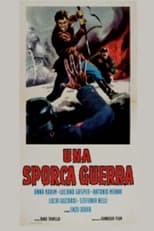
A Dirty War
January 1, 1965
In 1943, four Italian Alpini escape back to Italy after their company was decimated in Croatia by Yugoslav partisans. One of the four, Paolo, is seriously wounded and must undergo a leg amputation. The young man, embittered by his mutilation and the end of his soccer career, enlists in the fascist Brigate Nere. Once a member of the Brigate Nere, Paolo turns to evil and captures his former comrades, who must defeat him.
A Look Back at Crossbow
January 1, 1965
A promotional short for Operation Crossbow (1965) giving historical background for the film's plot using archival footage of Robert Goddard's rocket experiments in the 1930s. Nazi Germany bought his patents to start their rocket program.
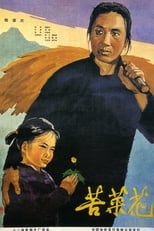
Bitter Greens
January 1, 1965
Mother Feng and her family struggle to live before and during the Japanese invasion of China.
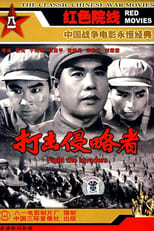
打击侵略者
January 1, 1965
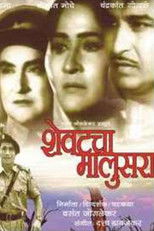
Shevatcha Malusara
January 1, 1965
An unusual Marathi war movie which mobilises and updates a historical/regional chauvinism associated with 17th-C. Maratha emperor Shivaji. Major Subhanrao Malusare, a direct descendant of Shivaji’s legendary lieutenant Tanaji Malusare, continues a proud family tradition by winning the Victoria Cross as an Allied officer fighting against Italian fascists in WW2. When he dies, his wife Savitri (Uma) vows that their son will never join the army. However, during the India-China conflict (1962), when her son’s friend is killed, she enjoins her son to fight for the nation even though the boy’s death would mean the end of the ancient clan. The film updated the rousing sentimentalism associated with Shivaji historicals into the present via songs such as He bharatiyano aika balidan katha veeranchi.
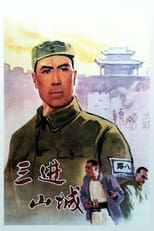
Express Train
January 1, 1965
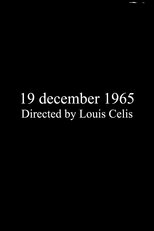
19 december
January 1, 1965
A short war film
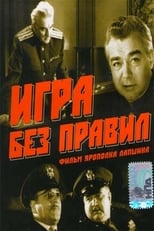
Game Without Rules
January 1, 1965
The Second World War is over. The post-war Germany is divided into several responsibility zones. Still many Russian people languish in camps located in the American zone. Though former allies are in no hurry to let them off to the motherland, and even try to enroll some of them. The American intelligence agency gets to know that they've got a daughter of one of the West Germany cities commandant, whose brother is a famous soviet rocket engineering designer. They plan a crafty operation on the discrimination of the Russian colonel and introduction of the niece into the uncles design office. The Russian Intelligence service is also aware of the Americans interest in the designers works. The special department colonel Lartsev is coming from Moscow to Germany to prepare a reciprocal operation.
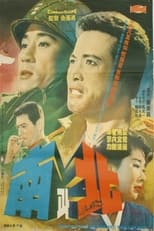
North and South
January 1, 1965
Based on a radio drama, this wartime melodrama revolves around a woman caught between two men: her husband, a South Korean lieutenant, and her former lover, a North Korean officer who defects to come find her. The film portrays not only their tragic love triangle but also the empathetic bond that develops between the two men.